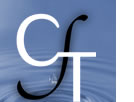 |
||||||||||
A Community of Scholars -
The Teaching Fellows Mentoring Workshop
Session 1 - How novices differ from experts
Session Outline (Time: ~ 3 hours):
1. Workshop introduction (30 minutes)
We begin with an overview of the Community of Scholars program, the Teaching Fellows workshop, and an introduction to the How People Learn framework.
2. Juggling and cognitive science part 1: Novices and experts (45 minutes)
After general introductions and an overview of the Community of Scholars program, we use a juggling exercise designed to remind many of the mentors and PIs what it feels like to be a novice. Each mentor/PI receives 3 tennis balls (unless she is an experienced juggler, in which case we provide more balls than she comfortably juggles already). An experienced juggler provides a brief demonstration for the group, and then we ask everyone to practice on their own for 5 minutes. At the end of the practice session, each person juggles (or attempts to juggle) for the group - leading to lots of laughter and the occasional surprising demonstration of skill. Then we talk about the experience of learning to juggle in this setting, highlighting that people bring different skills with them to the group and that novices can feel intimidated when learning around people for whom a task appears simple.
We then transition to a more academic discussion of expertise, based Chapter Two of How People Learn. We emphasize:
- Expertise is characterized by having efficient ways to organize, retrieve, use, and learn new information. In other words, an expert is fluent in a subject.
- Expertise is field-specific, so being an expert in one thing doesn't make you an expert in all things.
- A novice thinks differently than an expert, which does not mean the novice is dumb or lazy.
- Expertise is not a single point; instead, a continuum exists between novice and expertise. One of the challenges of mentoring is finding out where your intern is on that continuum and then helping him to move toward expertise.
We offer "cognitive apprenticeship" as a model for thinking about how a mentor can help an intern progress along that continuum. With this approach, the mentor not only shows the labs techniques involved in a process ("see it, do it") but also makes visible the cognitive steps the mentor is taking during the process (explaining, for example, why she chose to use this technique rather than another, and what she looks for to judge whether the process is working).
We conclude the session by pointing out that less experienced mentors sometimes can be the most effective teachers because they might more easily recall and understand a novice's thinking than would a more senior mentor. Junior mentors in the Community of Scholars, thus, are not "lesser" teachers but rather an absolutely essential component of the program. By creating mentoring groups with varying levels of expertise, we aim to take advantage of the layers of mentoring available in a lab team - an intern is mentored by junior mentor; the junior mentor is mentored by senior mentor, who in turn is mentored by the PI.
3. You vs. the interns (90 minutes)
To mentor well, you need to understand both the person you are mentoring and yourself. This module is designed to encourage participants to think about their own goals and expectations for the workshop, as well as those of the interns. The title of this module is adversarial partly as a joke, but also to emphasize the point that teaching fellows don't always share the same objectives as the interns.
We start by asking the participants to think about their own goals for the summer by spending about 10 minutes completing the Teaching Fellow Questionnaire.
After about 10 minutes of individual work on the Teaching Fellows Questionnaire, participants are asked to find the other members of their team and to complete the assignment below. This assignment is designed to get the mentors thinking together about what the interns bring to the experience.
For this assignment, we place junior mentors and senior mentors in separate teams. This allows the teams to focus on issues particular to their own level of experience.
Team Assignment: Find a place where you can work together as a team for the next 30 minutes. Spend a few minutes discussing your expectations for the research interns with other members of your team. In what ways are the expectations of other members of your team similar, in what ways are they different? Then, quickly re-read the Notes from April 2005 Meeting with the Research Interns from the folders you received last week.
When the entire group gathers together again your team will be asked to briefly discuss the areas you identified with the greatest alignment between intern and mentor goals/ expectations, and the areas with the greatest divergence. You have about 30 minutes for this assignment. |
At the end of 30 minutes, the entire group gathers again for a report-out and general discussion about the different perspectives of the interns and the mentors.
Facilitator prompts:
-
What are the important goals, themes and ideas identified by the teams? Document this list on a whiteboard or flip-chart.
-
Ask each group to identify the areas of alignment and divergence between the interests of the interns and the mentors.
-
Encourage each group (junior mentors and senior mentors) to comment on insights from previous years in the program, as interns, as junior mentors or senior mentors.
-
A brief discussion of backward design and how the important goals identified by the teams will inform the work that we do in this workshop and throughout the summer.
HOME | ABOUT CFT | PROGRAMS | SERVICES | RESOURCES
Center for Teaching |
General Questions? Web Site Questions? Copyright ©2008 |
